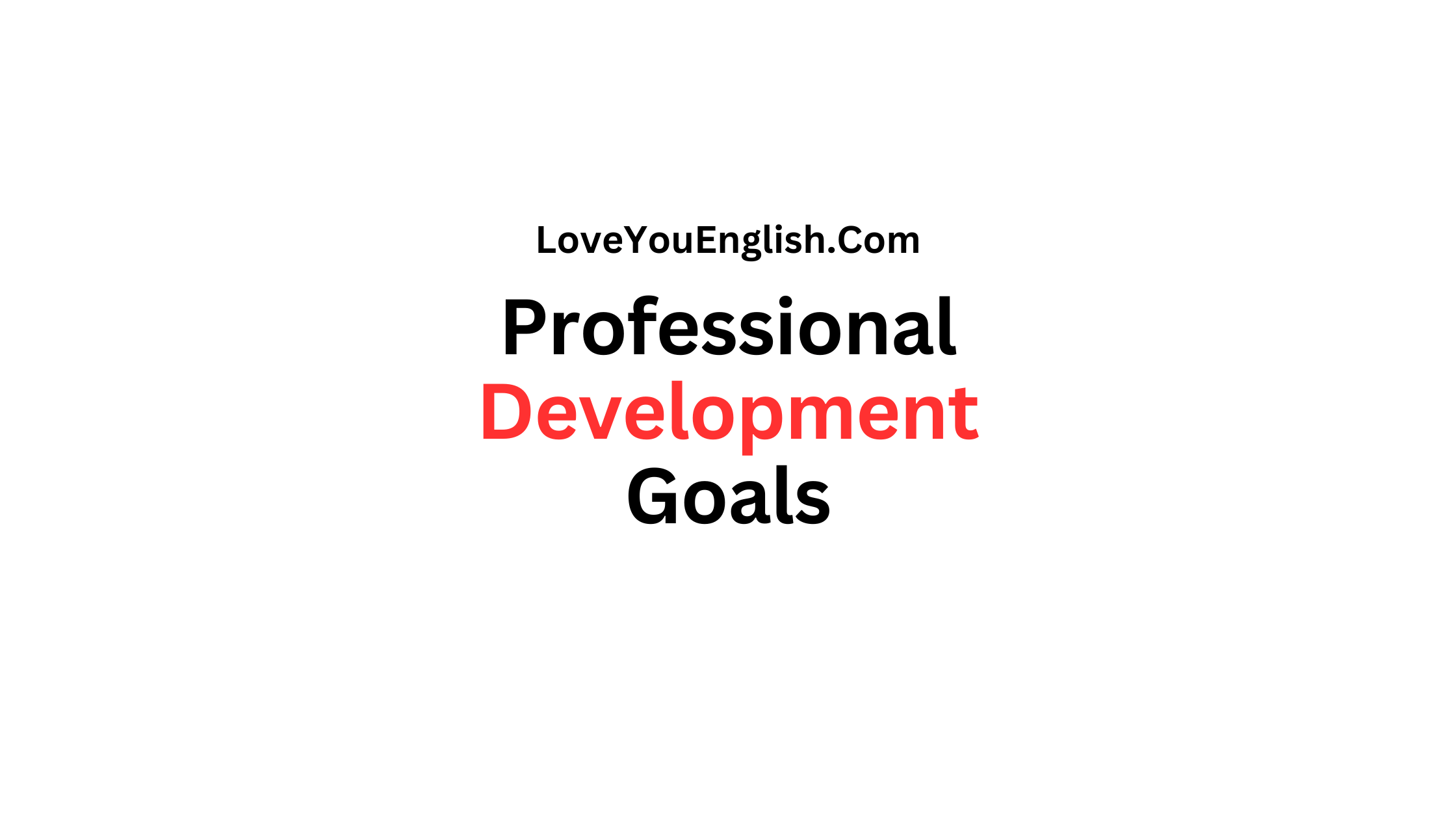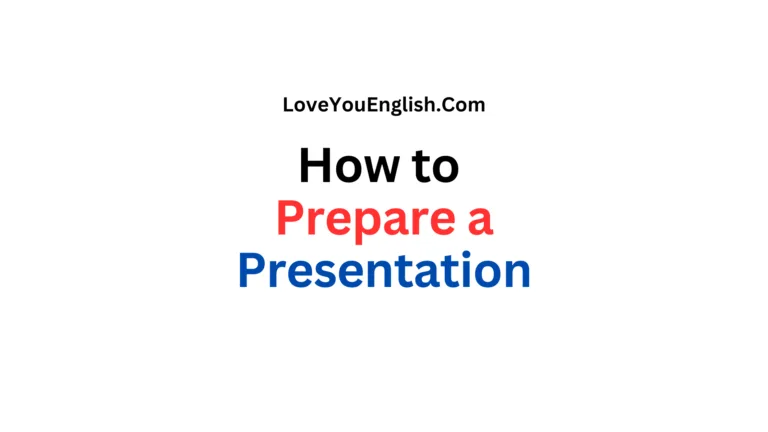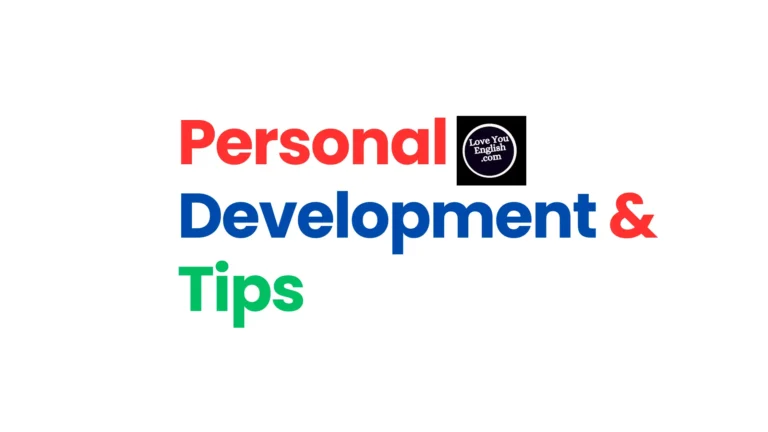Professional Development Goals
Professional Development Goals: A Comprehensive Guide
Professional development is essential for career growth and satisfaction.
Setting clear goals for your professional development can help you advance in your career, acquire new skills, and stay motivated.
In this post, we will explore what professional development goals are, why they are important, and how you can set and achieve them effectively.
What Are Professional Development Goals?
Professional development goals are objectives that you set for your career growth.
These goals focus on improving your skills, gaining new knowledge, and enhancing your performance in your job.
They are meant to help you advance in your career, become more competent in your field, and achieve personal and professional success.
Why Are Professional Development Goals Important?
Career Advancement:
Setting goals helps you advance in your career.
It provides a clear path for where you want to go and what you need to do to get there.
Skill Improvement:
Goals help you identify areas where you need to improve.
By focusing on these areas, you can develop new skills and become more effective in your role.
Increased Motivation:
Having clear goals gives you something to work towards.
This can increase your motivation and drive to succeed in your career.
Job Satisfaction:
Achieving your professional development goals can lead to greater job satisfaction.
As you improve your skills and progress in your career, you may feel more fulfilled and content with your work.
Adaptability:
In a rapidly changing work environment, continuous learning and development are crucial.
Setting goals helps you stay updated with industry trends and adapt to changes effectively.
More cool topics:
- How to Write a Complaint Email in 8 Steps
- Top 10 Personal Interview Questions (Plus Tips for Answering)
- Tips for Successful Online Video Interviews
- How To Make a Great Impression in a Job Interview
- 10 Communication Skills for Your Life and Career Success
How to Set Professional Development Goals
Setting effective professional development goals involves a few key steps.
Here is a simple guide to help you create and achieve your goals:
Identify Your Objectives
Start by identifying what you want to achieve in your career.
Think about your long-term career aspirations and the skills you need to reach them.
For example, you might want to become a team leader, learn a new technology, or improve your public speaking skills.
Be Specific
Your goals should be specific and clear. Instead of saying, “I want to improve my skills,” specify what skills you want to improve and how you plan to do it.
For instance, “I want to improve my project management skills by completing a certification course in project management within the next six months.”
Make Your Goals Measurable
Your goals should be measurable so that you can track your progress.
This means setting criteria for success.
For example, “I will increase my sales by 20% over the next year” is a measurable goal.
Set Achievable Goals
Make sure your goals are realistic and attainable.
Setting goals that are too ambitious can be discouraging if you do not achieve them.
Consider your current skills, resources, and time availability when setting your goals.
Ensure Goals Are Relevant
Your goals should be relevant to your career path and personal interests.
They should align with your overall career objectives and contribute to your professional growth.
Define a Timeframe
Setting a timeframe for your goals is crucial.
Decide when you want to achieve your goals by and create a plan to reach them within that period.
For example, “I will complete an online course in digital marketing by the end of the year.”
Create an Action Plan
Break down your goals into smaller, manageable tasks.
Create an action plan that outlines the steps you need to take to achieve each goal.
This will help you stay organized and focused on your objectives.
Seek Feedback and Support
Share your goals with a mentor, supervisor, or colleagues.
They can provide valuable feedback and support as you work towards achieving your goals.
They may also offer resources or advice to help you succeed.
Examples of Professional Development Goals
Here are some examples of professional development goals to inspire you:
Enhance Technical Skills:
“I will learn a new programming language by taking an online course and completing a project using this language within six months.”
Improve Leadership Abilities:
“I will attend a leadership workshop and apply the skills learned by leading a small team project within the next year.”
Develop Communication Skills:
“I will practice public speaking by joining a local Toastmasters club and delivering at least five speeches over the next six months.”
Expand Industry Knowledge:
“I will read one industry-related book per month and attend two conferences or webinars related to my field within the next year.”
Achieve a Certification:
“I will study for and pass the Certified Professional in Human Resources (PHR) exam within the next 12 months.”
Tips for Achieving Your Professional Development Goals
Stay Organized:
Keep track of your progress and deadlines.
Use a planner, calendar, or digital tool to manage your tasks and schedule.
Monitor Your Progress:
Regularly review your progress towards your goals.
This will help you stay on track and make any necessary adjustments.
Be Flexible:
Sometimes, you may need to adjust your goals or action plan based on new information or changes in your circumstances.
Be open to revising your goals as needed.
Celebrate Milestones:
Acknowledge and celebrate your achievements along the way.
Recognizing your progress can boost your motivation and confidence.
Stay Committed:
Achieving your goals may require time and effort.
Stay committed to your plan and keep working towards your objectives, even when faced with challenges.
Learn from Challenges:
If you encounter obstacles or setbacks, view them as learning opportunities.
Analyze what went wrong and how you can improve in the future.
Conclusion
Professional development goals are crucial for advancing your career and achieving personal satisfaction.
By setting specific, measurable, achievable, relevant, and time-bound goals, you can create a clear path for your professional growth.
Stay organized, monitor your progress, and remain flexible as you work towards your objectives.
Remember, achieving your goals may take time, but with dedication and perseverance, you can reach new heights in your career and enjoy a fulfilling professional journey.







